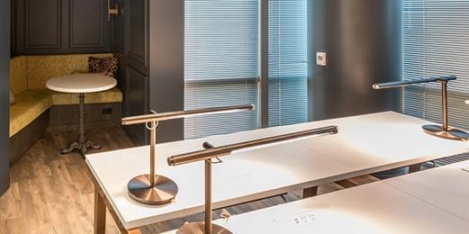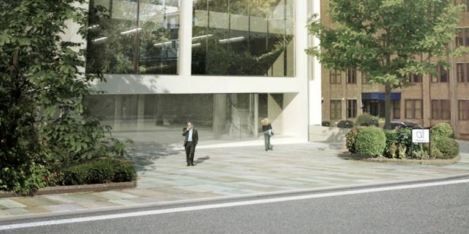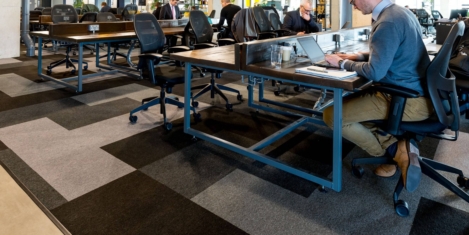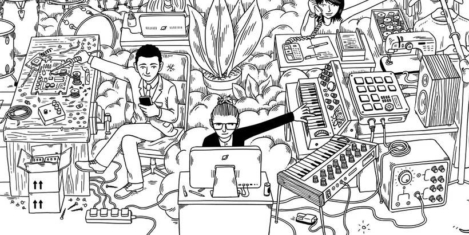August 1, 2018
Flexibility, daylight and a well-designed office are amongst most desirable workplace features
 Capital One has published the results of its latest survey of US full-time professionals for their thoughts on workplace design and the working environment as it relates to their productivity, innovation and collaboration with colleagues. According to the resulting 2018 Work Environment Survey of 3,500 office based respondents in urban centres across the US, many value flexibility and workplace design, particularly when evaluating whether to stay at their current job or consider a new employment opportunity. Employees also place a great deal of focus on technology, design elements such as lighting and agile workspaces, and personal wellbeing.
Capital One has published the results of its latest survey of US full-time professionals for their thoughts on workplace design and the working environment as it relates to their productivity, innovation and collaboration with colleagues. According to the resulting 2018 Work Environment Survey of 3,500 office based respondents in urban centres across the US, many value flexibility and workplace design, particularly when evaluating whether to stay at their current job or consider a new employment opportunity. Employees also place a great deal of focus on technology, design elements such as lighting and agile workspaces, and personal wellbeing.

























 Improved living standards, deflating pension pots and legal protection against age discrimination have all helped to nudge up the retirement age. The result is that for the first time since the Industrial Revolution five generations of employees are now working side by side. According to a new survey, two thirds of organisations (66 per cent) say that an age diverse workforce helped the company to have a more comprehensive skillset and knowledge base and more than seven in ten (71 per cent) felt that a multi-generational workforce brought contrasting views to their organisation. However, in the YouGov survey of middle market businesses commissioned by RSM, four in ten companies (41 per cent) said that a multi-generational workforce also increased the risk of conflict in the workplace.
Improved living standards, deflating pension pots and legal protection against age discrimination have all helped to nudge up the retirement age. The result is that for the first time since the Industrial Revolution five generations of employees are now working side by side. According to a new survey, two thirds of organisations (66 per cent) say that an age diverse workforce helped the company to have a more comprehensive skillset and knowledge base and more than seven in ten (71 per cent) felt that a multi-generational workforce brought contrasting views to their organisation. However, in the YouGov survey of middle market businesses commissioned by RSM, four in ten companies (41 per cent) said that a multi-generational workforce also increased the risk of conflict in the workplace. 










July 23, 2018
New report on the future of work argues we are at an inflection point on the journey
by Mark Eltringham • Comment, Technology, Workplace design
(more…)